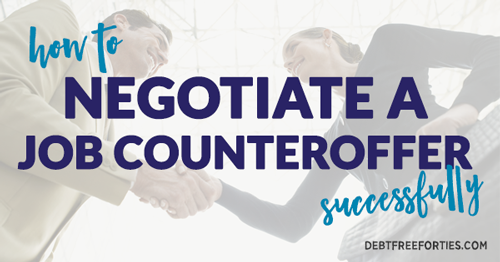The Step-by-Step Process I Used to Invest My Surprise Windfall

I recently came into about $100,000 that I wasn’t expecting.
To say I’m grateful is an understatement. It’s not exactly “life changing” money for our family, but it truly makes a difference.
After letting the money sit in a savings account for about half a year, I realized I was procrastinating on deciding what to do with it.
It’s easy to have theories about how you’d manage money, but when it’s your own money, and a little more than you’re used to dealing with, emotions can run high.
Historically, in high emotion situations I end up not taking action.
My worry is that I’ll make a bad choice that I’ll regret.
But time and wisdom have taught me that this avoidance strategy isn’t ideal. I always feel better about things by taking action.
Rather than endlessly brainstorming my options in my own head— which would likely lead nowhere— I’m going to share my work and show you my process.
Here are the questions I’m asking myself about this money, along with my responses.
By the end of this blog post, you’ll see how I thought through the decision from start to finish.
What are my goals for this money and when will I need it?
One of the tricky parts of this decision is I don’t know exactly when I’ll need this money.
I’m not thinking about it as retirement money, or funds I’ll use 10 or 20 years from now.
I’ll definitely want access sooner than that.
A few things on my radar:
- I have a few friends who have been trying to buy a commercial property together. We started years ago, but the market has been weird. I’m not sure what will happen, if anything.
- We have a large and growing family. At some point in the next 5–10 years we may decide we’d like a bigger home.
- Beyond that, I’m always looking for opportunities, and this money is kind of my “opportunity fund”. But I’d only take action for great opportunities, that are better than what I think I could get in the stock market.
Put all this together and I don’t think I’ll “need” this money for at least 7-10 years, but there’s a chance, if the right opportunity comes along I may want access sooner.
In the meantime, I’d like to see the money grow.
If I don’t end up touching it for 10 years, it’d be great if this money has been invested in the stock market and doubled in value, not just sitting in cash.
How would I feel if my investment went down 20%?
A lot of people like to ask “how much risk are you willing to take on” and I find that a difficult question to answer in the abstract.
I like to frame it this way: how would I feel if my whole investment dropped 10% overnight and the news was filled with headlines saying the worst was yet to come.
What if it did keep going down 15%, 20%, maybe even 25%?
Would I lose sleep over that? Would I be tempted to do something about it or just ride it out?
Knowing how you’d feel and how you’d react in these moments is a great data point on how you should invest.
If you’re worried about worst case scenarios, something like a high-interest savings account or a CD would be a good option.
If you’re more laid back, and willing to stomach volatility or even potential loss— then investing in something like an index fund might be worth it.
As for me, I’m somewhere in the middle.
I’m the kind of person that has felt like the stock market has been overvalued for the past 10 years, and a correction is always just around the corner.
I’d be particularly frustrated if the drop happened soon after I invested.
What would I advise a friend in my situation?
One piece of advice I go back to often is talking to yourself like you would a friend.
Somehow, this “outside” perspective encourages me to make less emotional and more reasonable choices than the “all or nothing” thinking I use when my mind is racing internally.
In this case, given what I shared above, I think I’d ask my friend (in this case, me!) what regret they most want to avoid: the regret of not being invested in the stock market and seeing it go up, or the regret of investing and seeing it go down.
If that still feels like a difficult decision, I’d tell my friend that they don’t have to choose one extreme or another and ask— what would a compromise look like?
I think you see where I’m getting at here.
Sometimes when you’re on the fence about a financial decision, you do nothing. But there are many options along the financial spectrum.
The best advice in the long-run is to be fully invested, even if that means investing more conservatively.
You don’t have to choose between all cash and all stocks. You can put 50-90% in stocks and the other 10-40% in bonds or a high-yield savings account, or some combination of the two.
The question to ask yourself isn’t “what’s most ideal” but rather “what ratio gets me comfortable enough to actually invest right now?”
There’s magic in compounding, but you sometimes need to overcome your own emotional barriers to get there. And that’s ok.
Here’s the option that moves the needle for me, and gets me to act
- 80% – S&P 500 ETF
- 20% – 7-10 Year Treasury Bond ETF
I hope that was a helpful process to see someone else go through.



